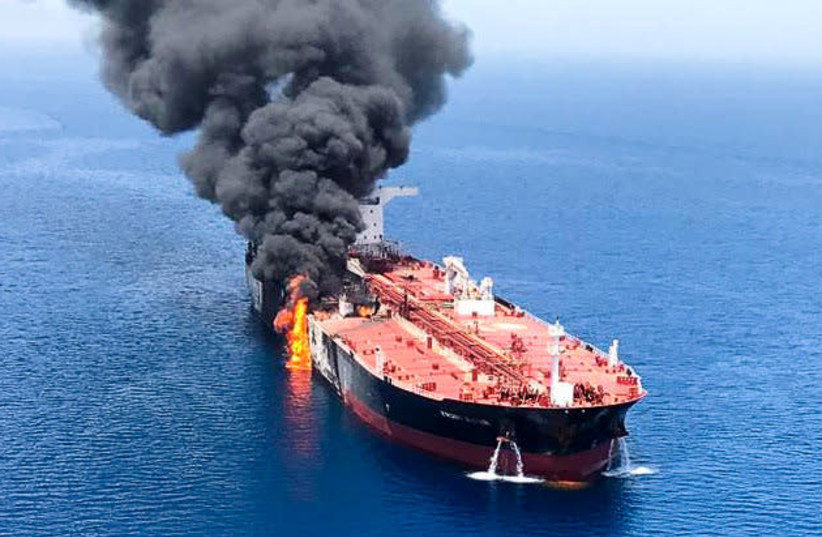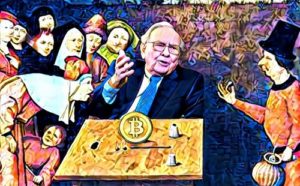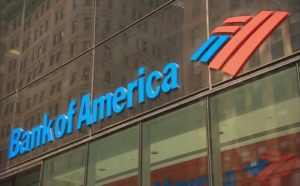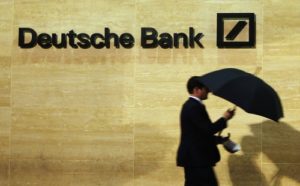Experts believe that the market will self-correct as it did on multiple occasions in 2019 despite Mideast tensions

US President Donald Trump’s decision to assassinate Quds Force commander Qasem Soleimani has sent shockwaves not only throughout the Middle East but also across global markets.
The price of international benchmark Brent crude topped $70 per barrel on Monday, a jump of about five percent since last week’s killing of the Iranian general in a drone strike in Baghdad.
The price increase comes amid growing fears of a potential war between Washington and Tehran, whose Supreme Leader Ali Khamenei has vowed to avenge Soleimani’s death by targeting US assets. In turn, President Trump has warned the Islamic Republic of possible “disproportionate” attacks if the mullahs strike American interests.
The US leader also threatened OPEC-member Iraq with severe sanctions after the parliament in Baghdad approved legislation calling for the removal of all foreign troops from the country.For its part, the US Defense Department declared that there was a “heightened risk” of Iranian attacks on Saudi oil infrastructure. A Tehran-attributed drone-and-cruise-missile attack on two plants in September temporarily cut the kingdom’s output by half and lowered the global oil supply by about 5%. While prices initially skyrocketed by about $10 per barrel, they had dipped below $60 the following month.
“I attribute the jump in oil prices to hysteria, as before Soleimani’s killing Iran was already involved in sabotaging Saudi oil facilities,” Dr. Alex Coman, value creation expert at the Academic College of Tel Aviv-Jaffa, told The Media Line. “After this occurred, prices soared but quickly dropped again as the damage was not as extensive as initially thought and was fixed immediately.
“The question moving forward,” he elaborated, “is whose oil might become scarce,” which, in turn, would lead to a drop in the global supply and thus an increase in prices.
“Despite US economic sanctions,” Dr. Coman continued, “Iranian oil does not have a problem getting to countries such as China. Regarding Iraq, there is no clear reason why its product would come off the market, plus the US has helped stabilize the supply situation.” He concluded that the US-Iran standoff is unlikely to result in an all-out war and therefore “oil prices will deflate as investors realize that the Middle East is not burning.”Yet the mere possibility of Shi’ite Iran retaliating against US interests in oil– and natural gas-producing Gulf States is rattling markets.
Across the Gulf – from Abu Dhabi (1.7%) to Manama to Doha – major indexes were down 1.5% to nearly 4%. Notably, shares of Saudi Aramco on Sunday hit their lowest point since the company’s record-setting Initial Public Offering last month on Riyadh’s Tadawul exchange. According to Reuters, Aramco is down over 10% since reaching a high of 38.70 riyals less than a week ago.
The cost of Brent crude has similarly fluctuated wildly in accordance with Middle East developments, hitting a $75-per-barrel peak in late April as tensions began mounting. Over the next few months, Iran was blamed for numerous attacks on oil tankers transiting vital Gulf waterways and for the seizure of others. By August, though, the price of Brent crude had plummeted to about $55 per barrel.
The relative situation could, however, change markedly if a broader conflict was to break out, and as the playing fields and variables continue to shift.
To this end, Iranian leaders on Sunday night announced that they will no longer abide by any of the restrictions on uranium enrichment stipulated in the nuclear accord. Many analysts believe the move marks the death knell for the multilateral deal from which President Trump withdrew in May 2018.
It is the latest in a series of incremental steps taken by the Islamic Republic, which over the past six months upped the quantity of its low-level enriched uranium stockpile; began producing the substance to a higher level of purity, thus shortening the breakout time necessary to manufacture an atomic weapon; and restarted nuclear activities at its controversial underground Fordow facility.
Despite the tensions and uncertainty, Dr. Yoel Guzansky, a senior researcher at the Tel Aviv-based Institute for National Security Studies, agrees that markets, in general, are liable to self-correct as the memory of Soleimani’s assassination begins to fade. “I believe that $65 per barrel for [Brent crude] is a reasonable price, as there is currently enough of it to go around,” he told The Media Line. “This is also in the price range of what many oil-related organizations have forecast for 2020.
“Also, what Iran has done over the past year [in terms of regional attacks] did not send sustained shocks through the oil market. If – and it’s a big if – the US-Iran faceoff escalates further, then we could see a significant jump,” Dr. Guzansky said. Source
StevieRay Hansen
Editor, Bankster Crime
MY MISSION IS NOT TO CONVINCE YOU, ONLY TO INFORM YOU…
“Have I therefore become your enemy by telling you the truth?”
Tagged Under: #Oil #Fraud #Banks #Money #Corruption #Bankers




